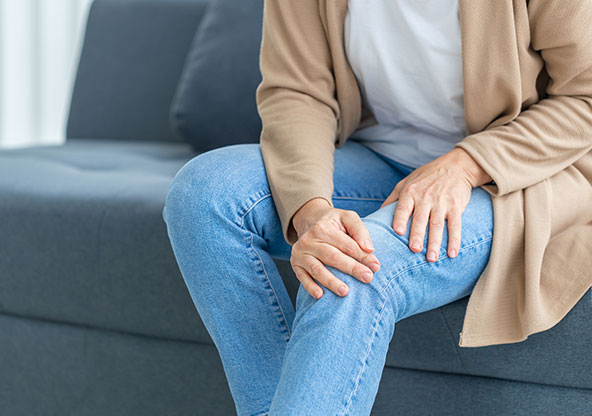When Should You Start Worrying About Knee Pain? Expert Advice from Dr. Hayden Joseph
Joint pain is a common concern that often becomes more prevalent as we age or engage in repetitive activities.
But when should you start worrying about your joints?
We delve into the expertise of a Longview orthopedic surgeon to help you understand when it's time to seek medical help.
Stay Active
Staying active is crucial for maintaining joint health, said Dr. Hayden Joseph, an orthopedic surgeon in Longview who has specialized in revision surgery.
Aerobic exercise can reduce inflammation and weight, increase circulation, and can make the muscles around the joints stronger.
These are all beneficial to your joints.
Pay Attention to Your Comfort Zone
However, joints have a "comfort zone," and stepping out of it through unusual or repetitive activities can lead to discomfort or pain.
So, whether you're doing repetitive tasks like hammering nails, practicing golf or training for a marathon, your joints may respond differently to different activities.
Persistent pain that limits your daily activities and doesn't improve with rest or over-the-counter medication is a sign that you should consult a healthcare provider. Dr. Joseph emphasizes that you shouldn't be limited in life because of pain.
When Chronic Pain Becomes a Problem
Chronic pain becomes an issue when it starts affecting your daily life. If you're avoiding activities because of persistent pain, it's time to get it checked out.
Dr. Joseph lists several activities that people often find limited due to knee and hip pain. These include walking, sports, and physically demanding jobs. If you notice that these activities are becoming more challenging, it may be time for a medical evaluation.
Chronic pain is more than just a physical sensation; it's an emotional and psychological burden that can seep into every corner of your life.
While occasional aches and pains are a normal part of life, chronic pain is different. It persists, often for months or even longer, and starts to interfere with your daily activities, mental well-being, and overall quality of life.
When pain becomes chronic, it can have a domino effect on your daily life. Simple tasks like grocery shopping, walking the dog, or even getting out of bed can become monumental challenges.
You may find yourself avoiding activities you once enjoyed because you're afraid the pain will flare up. This avoidance can lead to a sedentary lifestyle, which ironically can exacerbate joint pain and other health issues.
The best way to protect your joints is to stay active but be mindful of high-impact activities, especially as you age. Activities like jogging, running, and jumping can take a toll on your joints over time.
Surgical Options and Approaches
For severe cases, surgical techniques like the anterior-based muscle-sparing approach for hip replacement can be considered. Dr. Joseph prefers this approach for its quicker recovery time and lower dislocation rate.
Joint pain shouldn't limit your life. If you experience persistent pain that affects your daily activities, it's time to seek professional advice.
Experiencing persistent joint pain? Find an orthopedic doctor near you to schedule a consultation.


